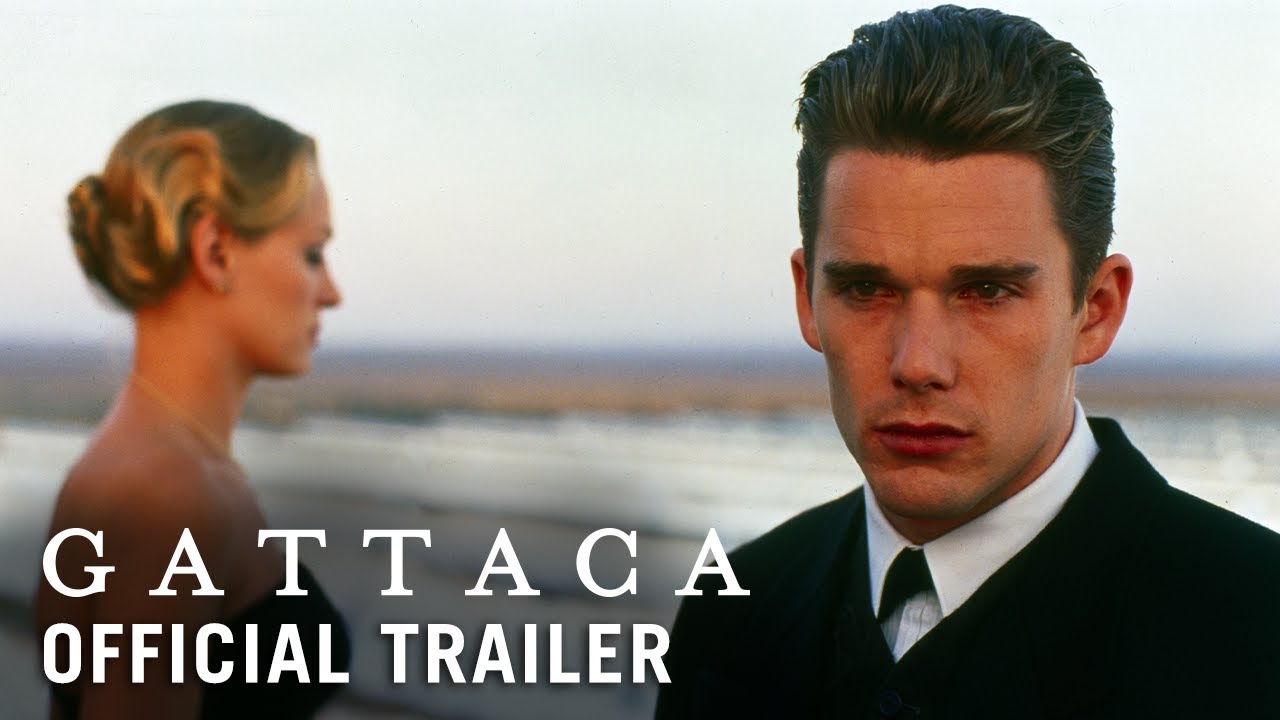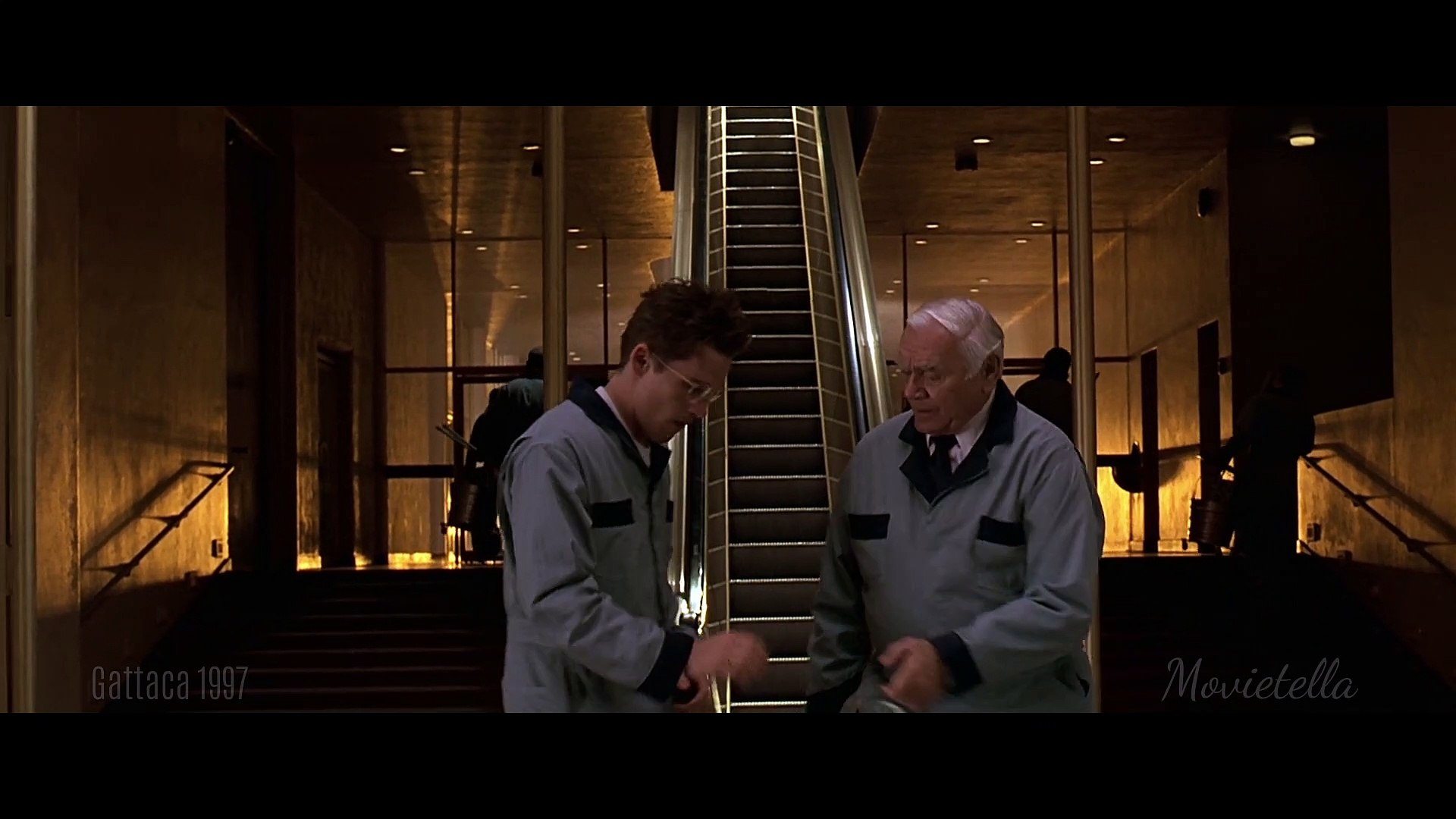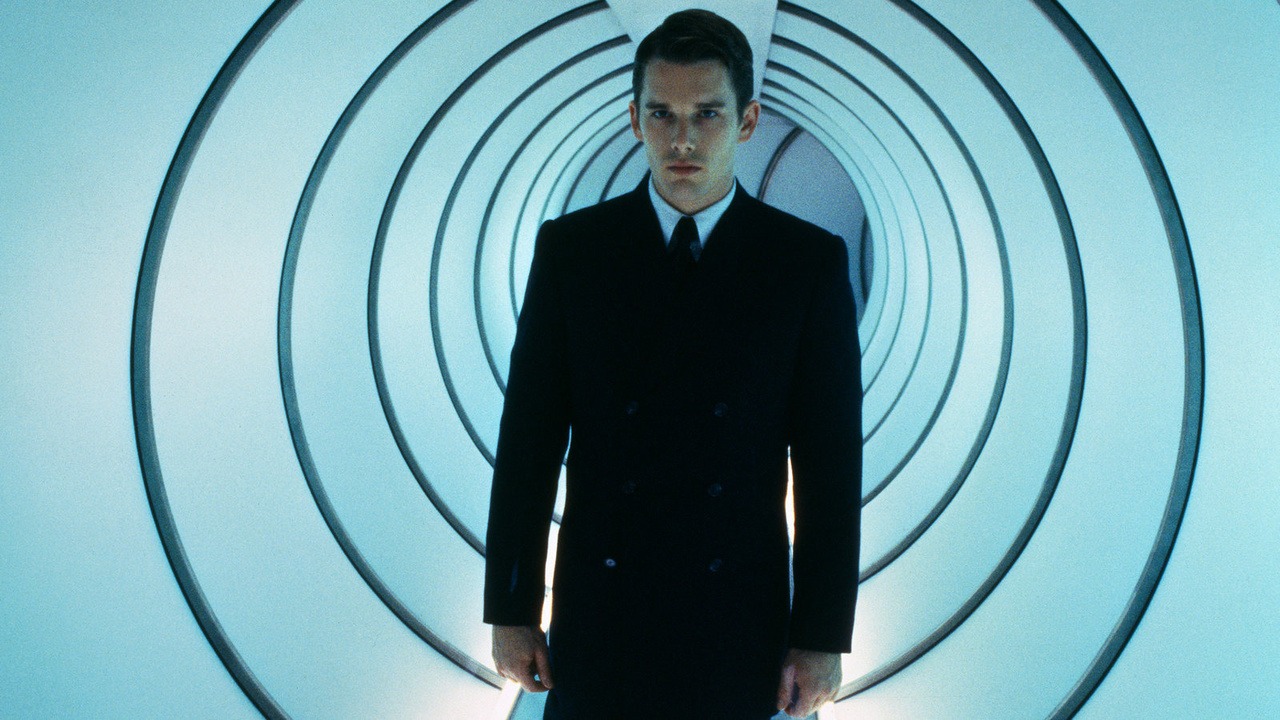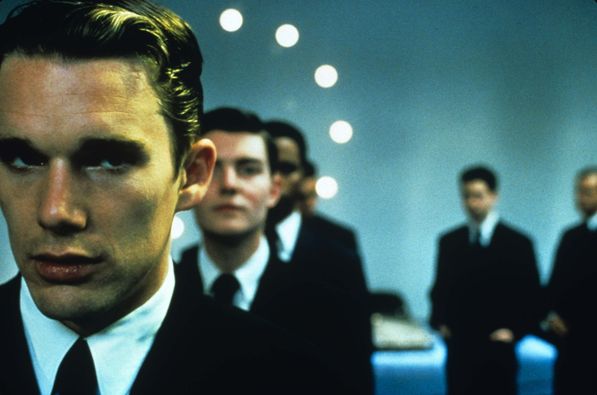Gattaca (1997)

Gattaca (1997) is a dystopian science fiction film written and directed by Andrew Niccol in his directorial debut. Set in a future where genetic engineering determines an individual’s social status, the film explores themes of destiny, free will, and the ethics of genetic manipulation. The movie features strong performances by Ethan Hawke, Uma Thurman, and Jude Law, with supporting roles by Loren Dean, Ernest Borgnine, Gore Vidal, and Alan Arkin. With its thought-provoking narrative and striking visuals, Gattaca remains a significant entry in the genre of speculative science fiction.
The film takes place in a future society where people are categorized and assigned roles based on their genetically-engineered perfection. Ethan Hawke plays Vincent Freeman, a man born through natural means, or “invalid,” who is considered inferior in a world dominated by genetically-modified humans. Despite being labeled as genetically flawed, Vincent dreams of traveling to space, a goal that seems impossible given his genetic profile. His determination to break free from the constraints of his birth is a central theme in the film.
Uma Thurman portrays Irene, a fellow employee at Gattaca Corporation, a company that selects candidates based on their genetic profiles. As Vincent’s love interest, Irene also harbors secrets about her own genetic background. Their relationship represents a mix of hope and limitation, as both characters grapple with the societal pressures to conform to their genetic design. Thurman’s performance adds an emotional layer to the story, as she and Vincent struggle with the limitations placed on them by their society.

Jude Law plays Jerome Morrow, a genetically-perfect man who becomes paralyzed after an accident. Jerome helps Vincent by providing his identity, allowing Vincent to pursue his dream of space travel. Law’s portrayal of Jerome is compelling, as he navigates the shame of his disability while still holding onto the desire to be perfect. His character underscores the idea that perfection does not equate to happiness, a key theme in Gattaca. The film shows that even those with “superior” genetics can be deeply flawed and dissatisfied with their lives.

The visuals in Gattaca are striking, with the film’s aesthetic reflecting the cold, clinical nature of the genetically-engineered society it depicts. The use of sleek, modern architecture, paired with muted colors, creates a sterile and oppressive atmosphere. The cinematography by Roger Deakins plays a significant role in conveying the tension and the societal control in the world of Gattaca. The film’s dark tone is enhanced by a hauntingly minimalist musical score by Michael Nyman, which underscores the sense of isolation and despair experienced by the characters.

In conclusion, Gattaca is a powerful and thought-provoking science fiction film that examines the ethical and moral implications of genetic engineering. Through the performances of its talented cast, including Ethan Hawke, Uma Thurman, and Jude Law, the film explores themes of human identity, the limitations of genetic determinism, and the power of human will. Directed by Andrew Niccol, Gattaca remains a standout film in the genre, offering a chilling vision of a future where technology dictates not only our health but also our place in society. Its relevance to current discussions on genetic engineering and individual rights makes it an enduring classic in the world of science fiction cinema.










